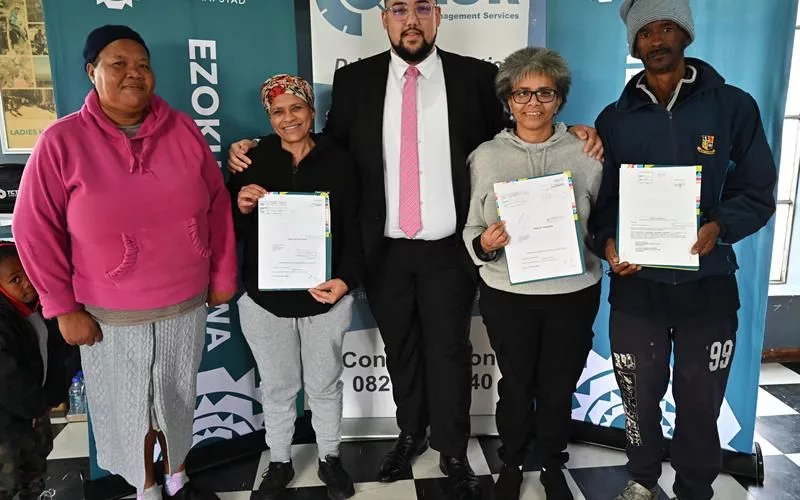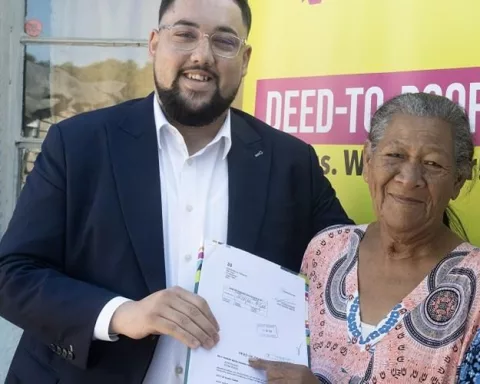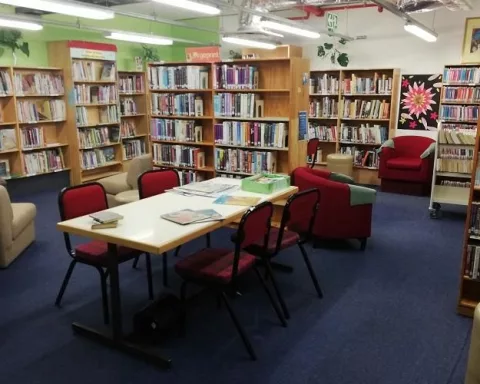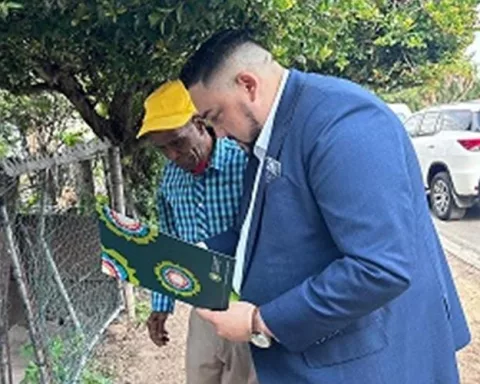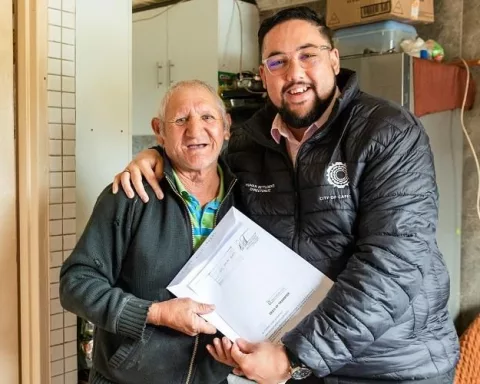The Title Deed Delivery Initiative in Cape Town is a campaign that brings title deeds to rightful owners, often straight to their homes, adding a human element to the process and strengthening the relationship between the City and its inhabitants. The initiative has life-changing implications for the residents of Cape Town, signifying a sense of security, belonging, and ownership. The campaign has distributed title deeds to thousands of beneficiaries, and the City continues to speed up the process, connecting individuals with their rightfully owned properties and fostering a sense of community service.
What is the Title Deed Delivery Initiative in Cape Town?
The Title Deed Delivery Initiative in Cape Town is a campaign that aims to bring title deeds to the rightful owners, often straight to their doorsteps. This unique approach adds a human element to the process and has life-changing implications for the residents of Cape Town. The initiative not only signifies a sense of security and belonging but also strengthens the relationship between the City and its inhabitants.
Cape Town is making waves with its ground-breaking initiative. This epic story springs from the roots of the city, specifically from the Wesbank neighborhood. The residents here have recently become title deed owners, thanks to a campaign that brings these crucial documents right to their homes.
The Transformative Event
Cape Town’s Wesbank was the center of an impactful event on the 20th of June 2024. As the day unfolded, palpable excitement grew among residents. The City’s Mayoral Committee Member for Human Settlements, Councillor Carl Pophaim, and his team of officials visited Wesbank. Their purpose was clear and straightforward: delivering title deeds to the residents, altering lives and molding future narratives.
The City has undertaken a noble yet challenging mission to distribute title deeds throughout the metro. The strategy entails identifying the rightful owners and personally delivering their title deeds, often straight to their doorsteps. This approach is a unique twist on the conventional door-to-door campaign, but with life-changing implications.
Strategy Implementation and Challenges
For addressing more intricate and historical cases, the City has enlisted the help of a service provider. With approximately 16,000 title deeds still awaiting delivery, the task is monumental. Councillor Pophaim has thrown down the gauntlet to the City’s teams, encouraging speed and efficiency in locating the rightful owners.
In an innovative move, title deed agents are personally visiting beneficiaries at their residences. The mission is to confirm and update the ownership information. These agents add a human element to the otherwise bureaucratic procedure, making it more personable and approachable.
The title deed, a venerated document, is a testament to ownership and is essential for any financial dealings and estate planning. The City acknowledges that a title deed signifies more than a transaction. It embodies a sense of security, stability and a feeling of belonging. Consequently, there is a rush to distribute them to as many beneficiaries as possible.
Support Measures and Future Implications
But what if you missed the title deed agent’s visit? The City has thought of everything. You can simply bring the required documents to the Cape Town Civic Centre, specifically the 2nd Floor Human Settlements Kiosk, and retrieve your deed.
For extra assistance, residents can reach out to the office via phone call on 021 444 0333 or email at title.deeds@capetown.gov.za. If residents have any reservations about the authenticity of the agents, they are encouraged to cross-check.
To request a title deed, residents need to provide essential information in their email request. The subject line should include the Erf number and Area. The email body should contain the Name and Surname of the title deed holder, the ID number, and the address.
Besides being a mere bureaucratic exercise, the City’s deed-to-door campaign connects individuals with their rightfully owned properties, fostering a sense of ownership and strengthening the relationship between the City and its inhabitants. This is more than just a Cape Town or Wesbank narrative. It’s a chronicle of determination, unity, and the unwavering spirit of community service. Indeed, this story is still being written, still unfolding.
How does the Title Deed Delivery Initiative work?
The Title Deed Delivery Initiative brings title deeds to the rightful owners, often delivered straight to their doorsteps. The City has enlisted the help of a service provider to address more intricate cases, and title deed agents are personally visiting beneficiaries at their homes to confirm and update ownership information.
What are the life-changing implications of the initiative?
The initiative signifies a sense of security, belonging, and ownership, with life-changing implications for the residents of Cape Town. It strengthens the relationship between the City and its inhabitants, connecting individuals with their rightfully owned properties and fostering a sense of community service.
How can residents obtain their title deeds if they miss the agent’s visit?
Residents can visit the Cape Town Civic Centre, specifically the 2nd Floor Human Settlements Kiosk, and retrieve their deed by bringing the required documents. They can also reach out to the office via phone call or email to request assistance.
What information do residents need to provide to request a title deed?
Residents need to provide essential information in their email request, including the Erf number and Area in the subject line, and the Name and Surname of the title deed holder, the ID number, and the address in the email body.
What is the significance of a title deed?
A title deed is a venerated document that signifies ownership and is essential for any financial dealings and estate planning. It also embodies a sense of security, stability, and a feeling of belonging.
What is the future implication of the initiative?
The initiative connects individuals with their rightfully owned properties, fostering a sense of ownership and strengthening the relationship between the City and its inhabitants. It is more than just a Cape Town or Wesbank narrative, but a chronicle of determination, unity, and the unwavering spirit of community service.

